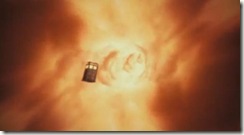Springing forward: Lose some sleep, increase your risk of a heart attack
 Hey… can you believe it? I almost forgot to post my semi-annual rant about having to change to daylight saving time. Fortunately for you, I remembered. 🙂
Hey… can you believe it? I almost forgot to post my semi-annual rant about having to change to daylight saving time. Fortunately for you, I remembered. 🙂
This evening most of North America sets its clocks forward an hour in a vain attempt to save energy. I say vain attempt because there hasn’t been any sound evidence that adjusting the clocks to chase the sunshine has actually resulted in any reduction in the demand for energy. There is, however, evidence that shows an increase in accidents in the days immediately following the switch.
Research from the University of Alabama at Birmingham published a couple of days ago reveals that there is a 10% increase in the risk of having a heart attack on the Monday and Tuesday following the time change in March. (The risk decreases by about 10% for a couple of days when the clocks are set back an hour in the fall.)
If you want to learn more about the history of daylight saving time, check out David Prerau’s book Seize the Daylight: The Curious and Contentious Story of Daylight Saving Time (hardcover: 1560256559; softcover: 1560257962). It’s actually more interesting than it sounds.
If you’re a *NIX system administrator you probably updated your systems a couple of years ago, but in case you haven’t you probably should take a look at this. The zdump command should give you something like this:
[gordon@seedling gordon]$ /usr/sbin/zdump -v /etc/localtime |grep 2014
/etc/localtime Sun Mar 9 06:59:59 2014 UTC = Sun Mar 9 01:59:59 2014 EST isdst=0 gmtoff=-18000
/etc/localtime Sun Mar 9 07:00:00 2014 UTC = Sun Mar 9 03:00:00 2014 EDT isdst=1 gmtoff=-14400
/etc/localtime Sun Nov 2 05:59:59 2014 UTC = Sun Nov 2 01:59:59 2014 EDT isdst=1 gmtoff=-14400
/etc/localtime Sun Nov 2 06:00:00 2014 UTC = Sun Nov 2 01:00:00 2014 EST isdst=0 gmtoff=-18000



 AKA Keeper of Maps, I'm a geocacher who lives in Ottawa, Canada.
AKA Keeper of Maps, I'm a geocacher who lives in Ottawa, Canada.
